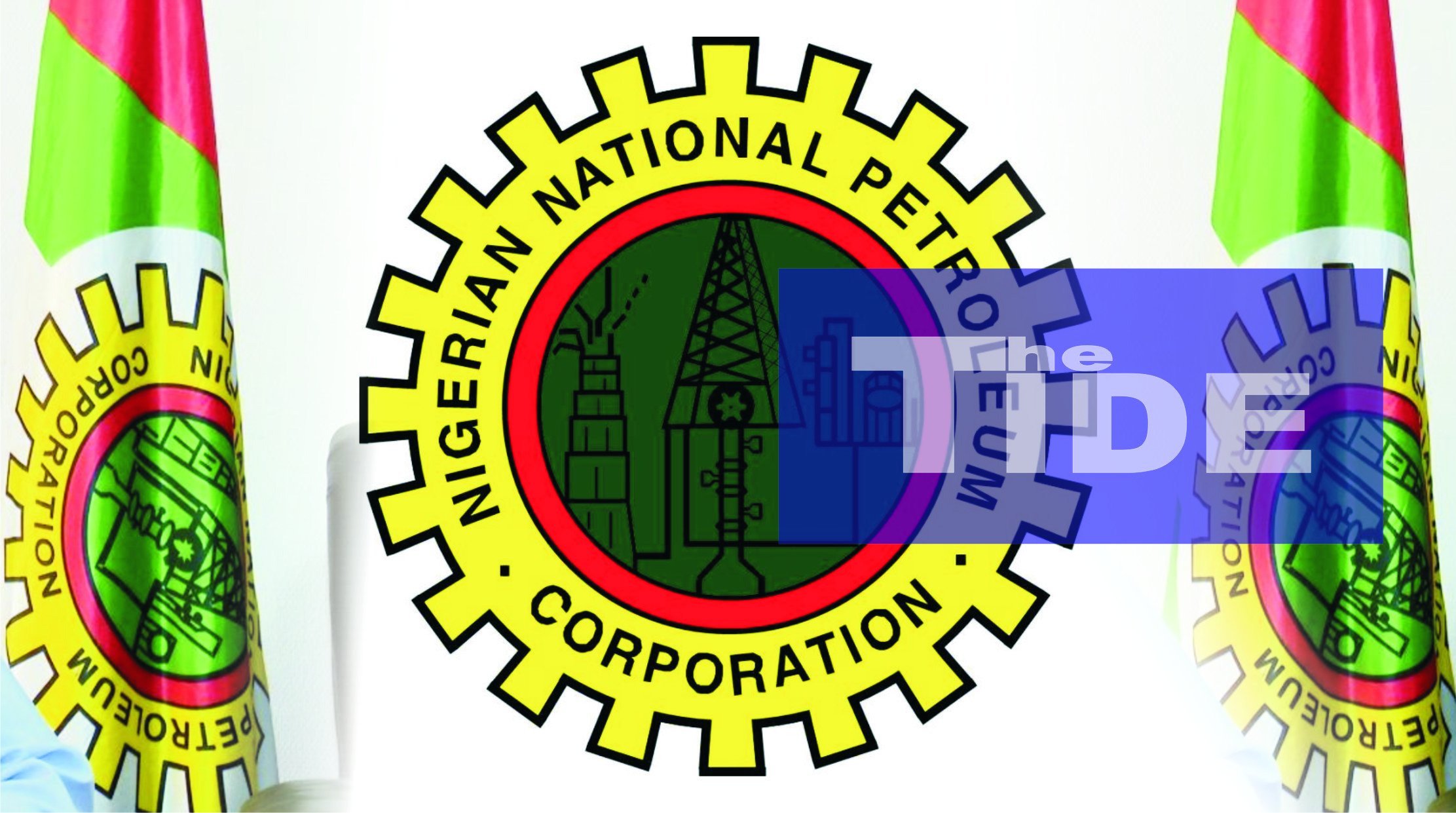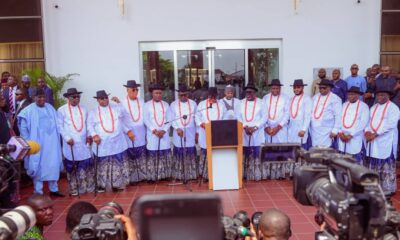Business
N2.015trn Worth Of Petrol Consumed In 13 Months, NNPC Claims

The Nigerian National Petroleum Corporation (NNPC) has reported that it sold N2.015trillion worth of petrol from November, 2019 to November, 2020.
The corporation in a statement, yesterday, said in the month of November, 2020, it recorded a trading surplus of N13.43billion up by 54 per cent when compared to the N8.71billion surplus recorded in October, 2020.
The NNPC said 1.725 billion litres of white products were sold and distributed by the Petroleum Products Marketing Company (PPMC), a subsidiary of the NNPC, in the month of November, 2020, compared with over 1.224 billion litres in the month of October, 2020.
This comprised 1.723 billion litres of Premium Motor Spirit (PMS), 2.13 million litres of Automotive Gas Oil (AGO) also known as diesel, and 0.33 million litres of Dual Purpose Kerosene.
The corporation added that total sale of white products for the period November, 2019, to November, 2020, stood at 17.031 billion litres and PMS accounted for 16.911 billion litres or 99.29 per cent.
“In monetary terms, a sum of N226.08billion was made on the sale of white products by PPMC in the month of November, 2020, compared to N158.04billion sales in October, 2020.
“Total revenues generated from the sales of white products for the period November, 2019 to November, 2020 stood at N2.034trillion, where PMS contributed about 99.09 per cent of the total sales with a value of over N2.015trillion.”
The NNPC’s spokesman, Dr Kennie Obateru, explained in the statement that the “trading surplus or trading deficit is derived after deduction of the expenditure profile from the revenue in the period under review”.
In November, 2020, NNPC Group’s operating revenue as compared to October, 2020, decreased slightly by 0.02 percent or N0.09billion to stand at N423.08billion.
Similarly, expenditure for the month decreased by 1.16 percent or N4.81billion to stand at N409.65billion, leading to the N13.43billion trading surplus.
Obateru explained further that overall, expenditure as a proportion of revenue was 0.97 in November, 2020 as against 0.98 in October, 2020.
He attributed the 54 per cent increase in trading surplus in the November to “the substantial decrease in expenditure from the Nigeria Gas Company (NGC) due to cost reduction in overheads, coupled with 38 percent reduction in NNPC Corporate Headquarters deficit”.
In addition, the NNPC Group’s surplus was bolstered by the noticeable improved profits for additional engineering services rendered by the Nigerian Engineering and Technical Company (NETCO) and increased revenue from import activities posted by Duke Oil Incorporated.
These healthy performances dominated the positions of all other NNPC subsidiaries to record the Group surplus, he added. He the figures are contained in the November, 2020, edition of the NNPC Monthly Financial and Operations Report (MFOR).
The report also indicated that export sales of crude oil and gas for the month stood at $108.84million, making a 70.33 per cent increase compared to the last month.
Crude oil export sales contributed $73.09million (67.15%) of the dollar transactions compared with $12.38million contribution in the previous month; while the export gas sales amounted to $35.75million in the month.
The total crude oil and gas export for the period of November, 2019 to November, 2020 stood at $2.89billion.
In the Gas Sector, a total of 222.34 Billion Cubic Feet (BCF) of natural gas was produced in the month under review, translating to an average daily production of 7,411.52 Million Standard Cubic Feet per Day (mmscfd).
For the period November, 2019 to November, 2020, a total of 3,004.06BCF of gas was produced, representing an average daily production of 7,642.69mmscfd during the period.
The report also stated that out of this volume, production from Joint Ventures (JVs) accounted for 67.29 percent, Production Sharing Contracts (PSCs) accounted for 19.97 percent, while the Nigerian Petroleum Development Company (NPDC) accounted for 12.74 percent.
A further breakdown showed that a total of 137.41 BCF of gas was commercialized, consisting of 39.99BCF and 97.42BCF for the domestic and export market respectively.
This translates to a total supply of 1,332.82 mmscfd of gas to the domestic market and 3,247.44 mmscfd of gas supplied to the export market for the month.
This implies that 62.55 per cent of the average daily gas produced was commercialized while the balance of 37.45 per cent was re-injected, used as upstream fuel gas or flared.
Gas flare rate was 7.89 per cent for the month under review translating to 577.39 mmscfd.
A total of 789mmscfd was delivered to gas-fired power plants in the month of November, 2020, to generate an average power of about 3,358MW compared with October, 2020 when an average of 750mmscfd was supplied.
Business
Lokpobiri Condemns Abandoned Refinery Project in N’Delta … Vows Revival
Business
FG Unveils Industrialisation Strategies In 2025 … To Conduct MSMEs Census
Business
Coy Strengthens Commitment To Nigeria’s Energy Future
-

 News4 days ago
News4 days agoFubara Attends PDPGF Meeting In Asaba …..Back Court Verdict On National Secretary Position
-
Nation4 days ago
Okehi Clan Demands Recognition, Upgrade Of Chieftaincy Stool
-
Business2 days ago
PETROAN Accuses Crude Oil Producers Of Diverting 500,000bpd Refineries-Bound Product
-
Business4 days ago
REA, RESCOs Sign Agreement To Establish 23 Mini-grids
-
News2 days ago
MAN Warns Against Further Hike In Electricity Tariff
-
Sports2 days ago
W’Cup: Eagles Get Dates for Rwanda, Zimbabwe Qualifiers
-
News4 days ago
Telecom Operators Dismiss Talks With NLC On Tariff Hike
-
Politics4 days ago
How Akande Lied Against Me Over Bola Ige’s Case – Ladoja

